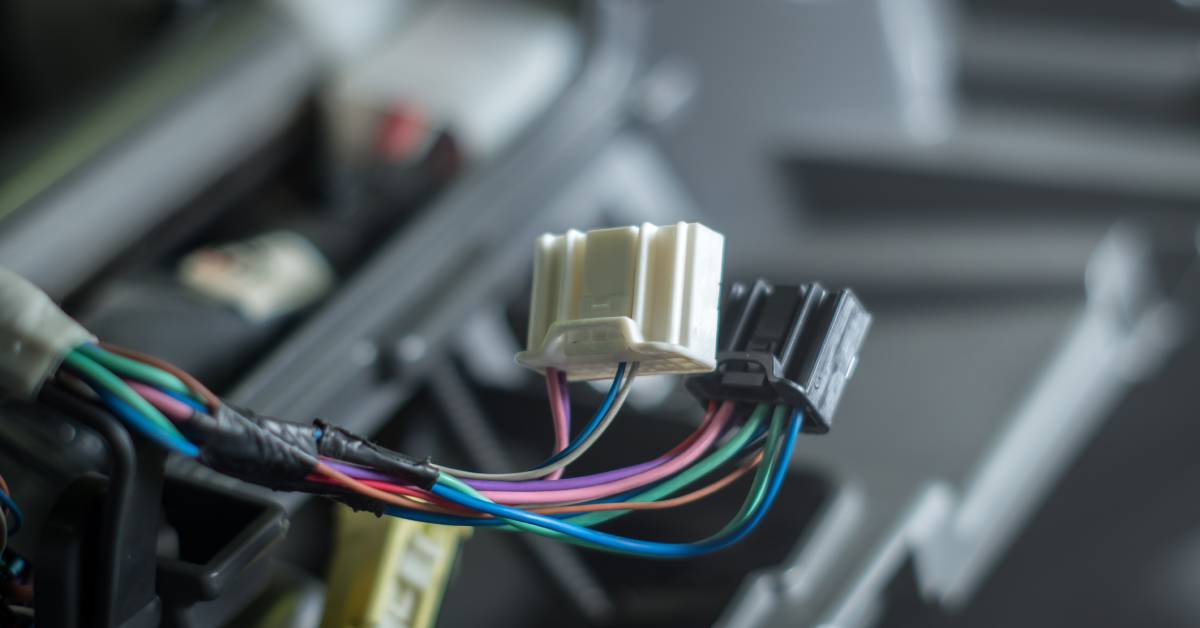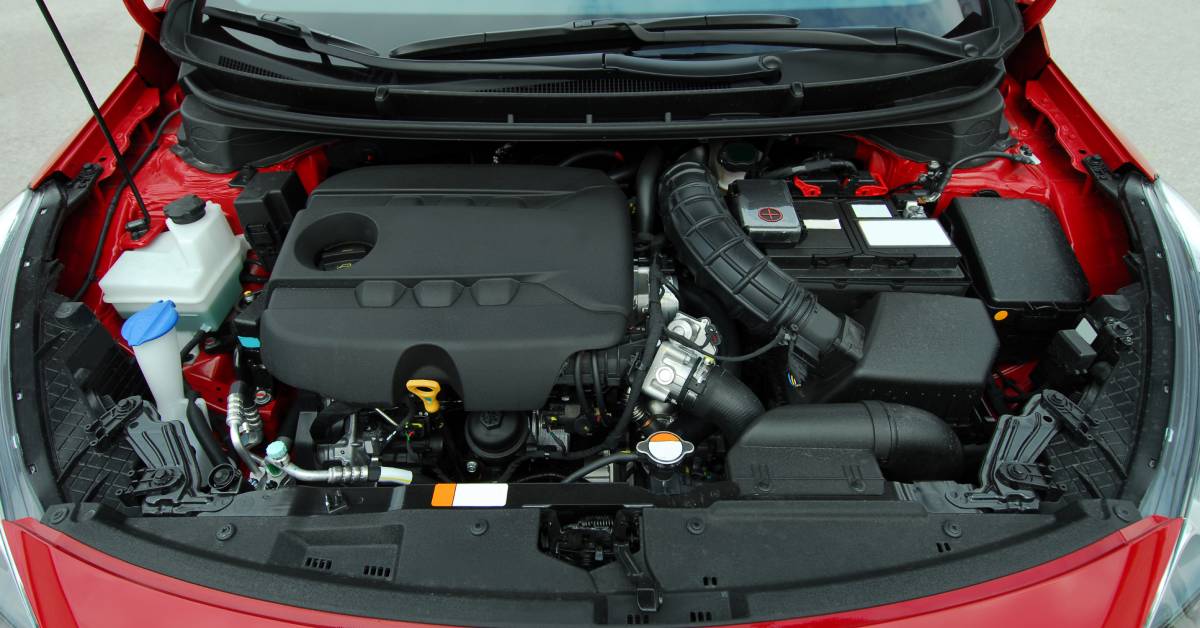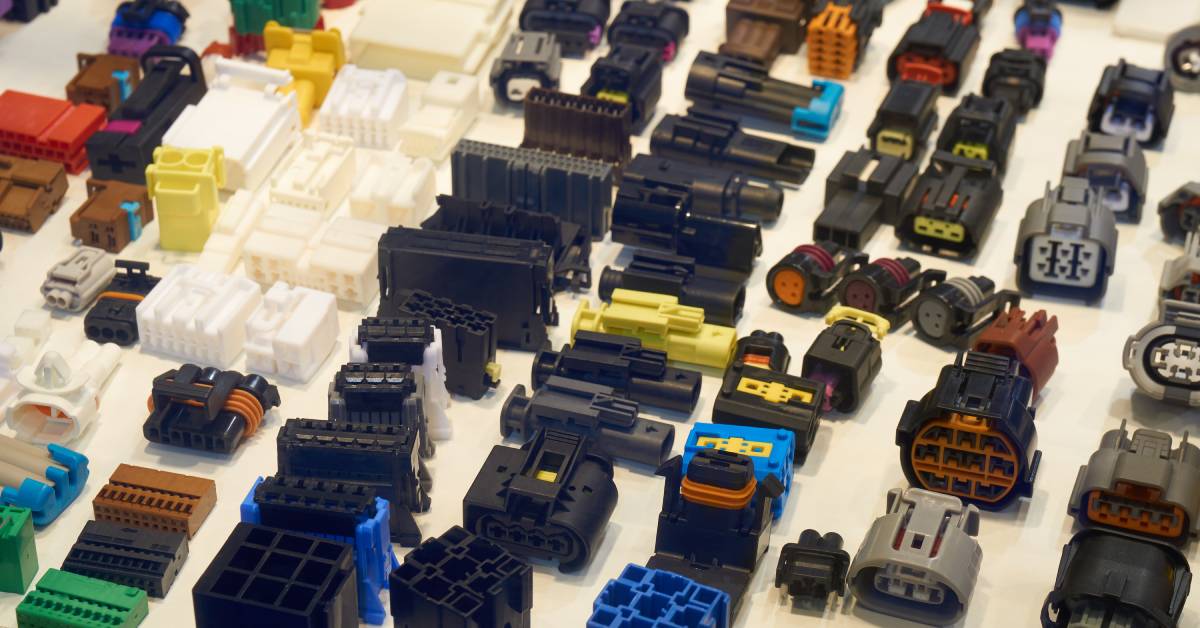Comprehensive Guide to Electrical Connectors
Comprehensive Guide to Electrical Connectors

Electrical connectors are fundamental components of any electronic circuit or device. They form the interface between electrical systems, allowing power transfer and signals. Electric connectors ensure all electric systems work properly in vehicles. This comprehensive guide to electrical connectors includes the details you should know about these parts.
What Are Automotive Electric Connectors?
Automotive electric connectors are integral to the daily operations of every vehicle—cars, semi-trucks, trailers, and pickup trucks—on the road. They connect wires and cables, providing a reliable connection for electrical circuits to ensure the safe and efficient operation of various vehicle systems.
3 Types of Automotive Electric Connectors
Automotive connectors serve specific applications, such as powertrain control, engine management, audio systems, and lighting. For example, pin connectors are suitable for high-current applications such as headlights and starter motors. Other connectors transfer data signals, while others carry high-voltage currents.
Three types of automotive connectors include the following:
- Pin/pigtail connectors
- Blade connectors
- Bullet connectors
All Vehicles Use Electric Connectors
Although we often associate the word “vehicle” with cars, trucks, and motorcycles, all means of transportation—from skid steers to boats—utilize electric connectors. The exact connectors they need may vary, but the purpose remains the same.
Pro Tip
If you don’t know which type of connector your vehicle needs, consult the owner’s manual or your mechanic; often, the manual will list the type of connector for each area.
Importance of Automotive Electric Connectors
Modern manufacturers design connectors in environments with high temperatures, vibrations, moisture, and electromagnetic interference. Durability ensures that vehicle systems operate reliably, even under varied conditions.
Moreover, electric connectors facilitate communication between different systems in a vehicle, such as the engine, transmission, and sensors. This exchange of information is crucial for the efficient and safe operation of a vehicle.
Automotive Connectors Ensure Reliable Performance
Automotive electric connectors provide a stable connection that ensures the smooth operation of various vehicle systems. If systems such as the brakes or transmission control could not communicate with other areas of the car, driving would become hazardous.
4 Areas of the Car Reliant on Connectors

Every flick of a switch or press of a button in a modern vehicle invokes a symphony of electrical interactions facilitated by connectors. They are indispensable for your vehicle’s systems. Let’s explore four areas of a car that rely on connectors:
Transmission Control
Connectors in the transmission control system bear a great responsibility. They enable communication between the car’s computer and transmission, facilitating precise gear shifts. Coordination is imperative for delivering the engine’s power to the wheels.
Without these connectors, a car’s transmission system would be prone to errors, which could lead to poor performance or even complete failure.
Engine Control Unit (ECU)
The engine control unit relies on automotive connectors to control fuel injection, ignition timing, and emissions systems. These connectors facilitate communication between sensors and the ECU for engine performance and emissions control. If a vehicle did not have reliable connectors, the ECU could not monitor these systems, leading to potential engine malfunctions.
Audio and Entertainment Systems
Most of us couldn’t imagine driving without playing music on the radio or through a Bluetooth device. Similarly, many modern cars have built-in GPS that we rely on for navigation. Automotive electrical systems make all this possible by transferring data signals through the vehicle. For instance, when you turn on the radio, connectors in the audio system allow it to communicate with the car’s main computer, enabling you to control volume and change radio stations.
Door Locks and Power Windows
Nearly all cars have powered windows and powered locks that drivers can control with the push of a button. Electrical connectors make these connections possible by transferring power from the battery to the door control modules.
Reasons To Replace Automotive Connectors
You may need to replace your automotive connectors for many reasons, such as natural wear and tear or getting into a car accident. We’ve highlighted some of the main reasons below.
Deterioration Due to Environmental Factors
Extreme heat and cold, moisture, and road salt can lead to corrosion of the connector or wires. Corrosion impedes conductivity, resulting in erratic system performance or complete failure.
Wear and Tear From Vehicle Use
Eventually, connectors wear out and require replacement. They are durable but not indestructible, and some naturally wear out with frequent use. As a result, areas of the car powered by that connector may fail to work correctly.
Getting Into a Car Accident
Getting into a wreck can impact numerous areas of the car, depending on the severity of the accident. Sometimes, a crash damages the electrical connectors inside your car due to broken wires, corroded terminals or pins, or physical damage to the connector itself.
Pro Tip
If you get into a car accident, take your car to a mechanic to have it checked. Do this even if your vehicle appears perfectly fine, as damage to connectors and wiring may not be visible.
How To Determine the Type of Pin Connector You Need

Our comprehensive guide to electrical connectors would be incomplete if we didn’t discuss how to determine which type of pin connector you need. Choosing the wrong type can lead to malfunction or damage. You should evaluate the shape, count the number of pins, and consider your vehicle’s needs to help you buy the right pin connector.
Evaluate the Shape
Recognizing the connector’s shape is paramount for vehicle safety. A mismatched connector simply will not fit. The shape varies widely, such as round, flat, rectangular, and triangular. It can also vary for each area of the car and the type of vehicle.
Count the Number of Pins
The number of pins on a connector dictates its compatibility. Some cars require a 9-pin electrical connector to power a system, and that same connector might not work in a different vehicle. Get an accurate count of the number of pins to avoid purchasing the wrong connector.
Pro Tip
Some connectors have color-coded terminals that match the colors of the wires you’ll thread through. Note this as you inspect the vehicle to make replacement easier.
Consider Your Vehicle Needs
Vehicles necessitate different selector considerations. A car might require standardized connectors for audio or power systems. An RV might rely on more rugged, weather-resistant varieties. Boats may demand connectors that resist corrosion from saltwater. Understanding your vehicle’s needs can prevent costly mistakes down the line.
Shop for Automotive Connectors
Connector Experts sells thousands of options for automotive pin connectors, from one pin to over 70! Order high-grade pin connectors come from a trusted supplier, so you can do all the necessary electric repairs on your vehicle with confidence in quality.

You must login to post comments.